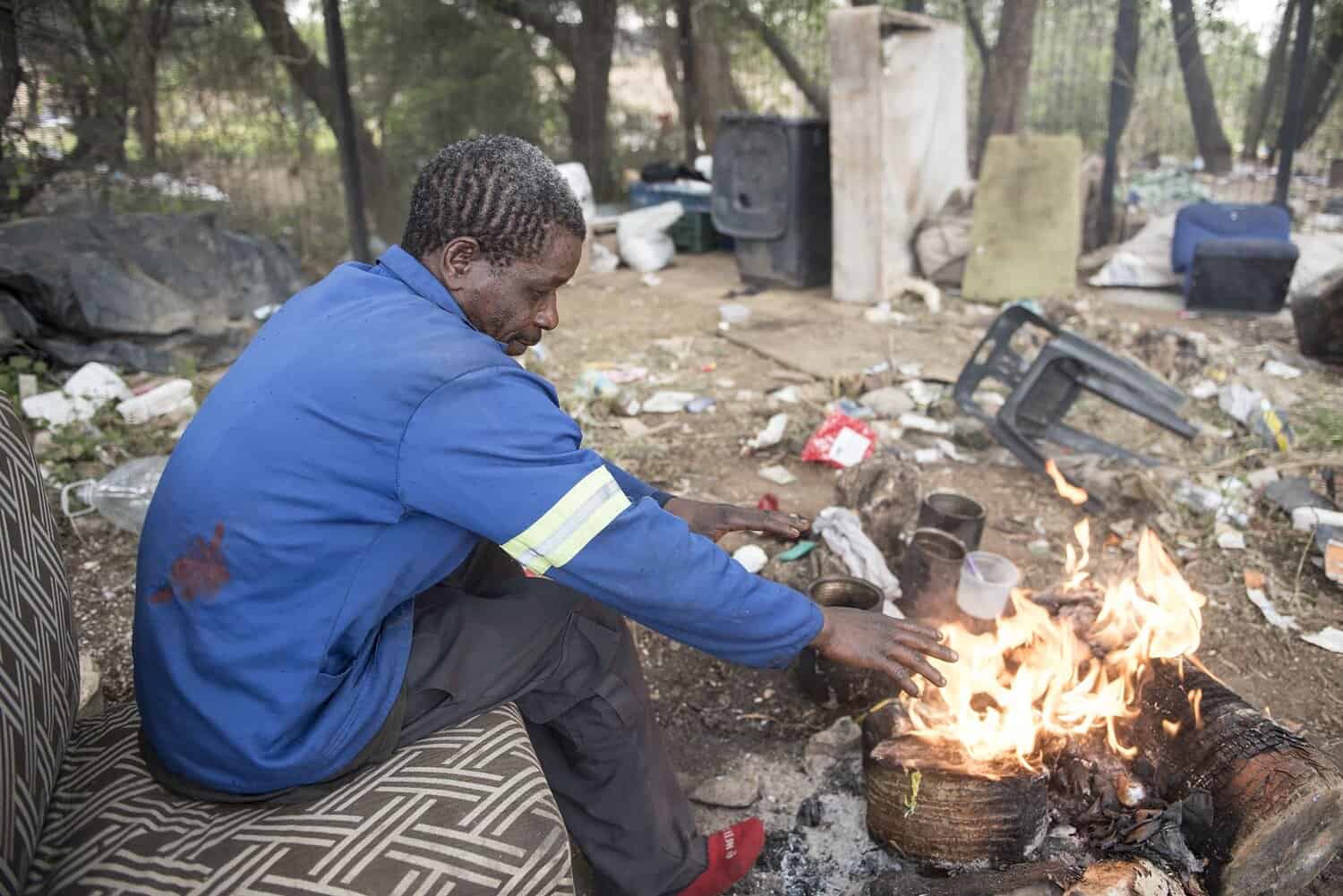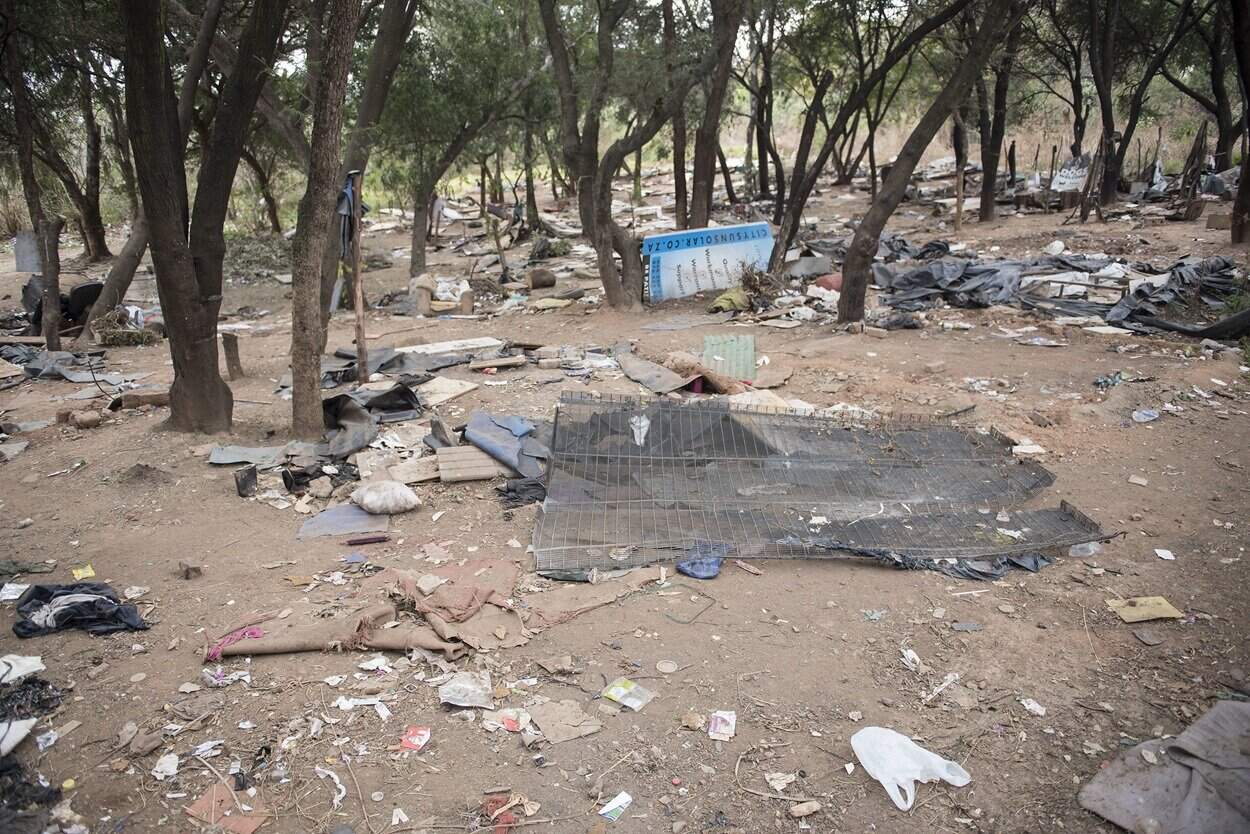Tshwane continues to face challenges relocating illegal settlers from the environmentally sensitive Wolwespruit wetland in Pretoria.

Residents expected the removal of more than 300 illegal informal settlers from the Wolwespruit wetland in the east of Pretoria earlier this month would end their two decade-long troubles.
But ward 83 councillor Andrew Lesch confirmed that about 30 informal settlers stayed behind and started erecting structures at Wolwespruit wetland, from where the others had been removed.
Lesch said that out of the 30 settlers, about 22 were living along Solomon Mahlangu Street and the rest were in Nossob Street.
Settlers stayed behind, started erecting structures at Wolwespruit wetland
“They started building structures, but the metro police removed them on Monday and was ordered to resolve the matter,” he said.
ActionSA Tshwane caucus spokesperson Henriette Frohlich commended the commitment of the City of Tshwane to resolve this long-standing environmental crisis and for identifying permanent stands above the flood line and restoring the dignity of the Wolwespruit illegal squatters.
“It was never classified as an informal settlement and was thus not included on the Upgrading of Informal Settlement Programme.
ALSO READ: Pretoria residents relieved as Wolwespruit informal settlement is relocated
“By the time eviction notices were issued in November 2021, about 192 households were recorded, of which 110 were South African, 67 Basotho and 15 Zimbabwean,” she said.
Frohlich said in July 2022, the city started to act on a court application to demolish the shacks and relocate the occupiers to Orchards Extension 10, but the illegal settlers refused to be moved.

“The city then requested the court grant an urgent eviction order to evict/relocate the occupiers, but the urgent eviction application was dismissed with costs due to lack of urgency.
New court application to evict occupiers
“The new eviction application was then placed on a normal court roll and voluntary relocation forms were distributed to the illegal squatters for submission.
“Only 70 South Africans were verified, most of whom have now been relocated to Pienaarspoort,” she added.
Wingate Park resident Allison Hayward said the community surrounding the Wolwespruit informal settlement at Solomon Mahlangu and Delmas Streets has long advocated for its removal due to concerns about its location on a protected wetland, noise, smoke, waste dumping and illegal activities.
ALSO READ: JMPD clears illegal settlers after long community push in Fourways
“After years of persistent effort from community members, community policing forum groups and city officials, the eviction and resettlement of the Wolwespruit informal settlement has finally occurred.
“While the removal is a welcome development, there are ongoing concerns regarding the resettlement process,” she said.
Hayward said that after the recent relocation, approximately 30 additional South African citizens, who were not accounted for in the original plans, were displaced and are now camping on pavements in the surrounding area (Delmas, Solomon Mahlangu and Nossob streets).
Relocated camping on pavements

“This led to new issues such as makeshift shacks, open fires and sanitation problems, posing risks to both the displaced individuals and the wider community.”
Hayward said the community believes the human settlements department should take responsibility for this oversight and ensure these individuals are properly relocated to Pienaarspoort, as initially planned for other South African residents.
“There appears to be internal departmental disagreement within the City of Tshwane regarding who is responsible for these displaced citizens,” she said.
ALSO READ: KZN MEC says it’s ‘unfortunate’ that relocated families return to live on cemetery graves
AfriForum’s northern region head of safety Llewellynn Hemmens has called on the city to act on other hotspots in Pretoria.
“The occupation of this area has caused serious problems such as an increase in crime, cable theft and pollution, which has been exacerbated by illegal recycling and dumping. This has damaged the environment almost beyond repair.
“There are many similar examples where the city’s inaction has led to serious socioeconomic and environmental challenges, such as in the case of the Plastic View settlement behind Moreleta Church in De Villebois Mareuil Drive.
Metro’s failure to act
“This settlement began as temporary housing for illegal squatters and has expanded into a huge informal settlement due to the metro’s failure to act,” he added.
Hemmens said that although the city previously got an eviction order to move Plastic View settlers to a new site, they refused to move.






